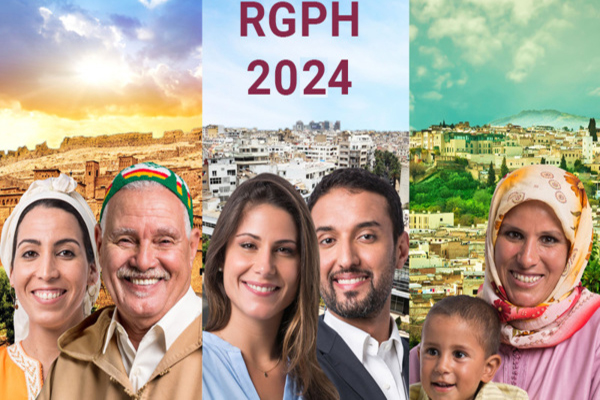On July 11th each year, the international community celebrates World Population Day. This year’s theme, “Counting Everyone to Leave No One Behind,” highlights the crucial role of censuses in socio-economic planning and development. Aligning with this vision, and following the directives of His Majesty King Mohammed VI and the recommendations of the United Nations Statistical Commission, Morocco will conduct its seventh General Population and Housing Census (RGPH) from September 1 to 30, 2024.
Objectives and technological innovations of the 2024 census
The High Commission for Planning (HCP) has shared key information about the main goals of the RGPH and emphasized the technological advancements characterizing this national operation. The 2024 census comes at a time when Morocco has demonstrated resilience in overcoming challenges such as the COVID-19 pandemic, droughts, and inflation. The nation is now poised for promising prospects, supported by its strategic geographical position, rich historical heritage, and Royal initiatives aimed at enhancing its regional and international standing. The slogan “Tomorrow is Within Our Reach,” chosen for RGPH 2024, reflects optimism and responsibility, emphasizing that building the future relies on both individual and collective commitment.
One of the primary goals of the RGPH is to determine the legal population across all administrative units in the Kingdom. This ensures that every individual and every dwelling is accounted for, providing comprehensive and exhaustive coverage of the national territory without omissions or double counting. Conducting the census simultaneously, with all data referencing the same date, is crucial for obtaining accurate and reliable results.
The census will also identify the demographic and socio-economic characteristics of the population and the living conditions of households. The RGPH 2024 will employ two types of questionnaires: a short form for the entire population, addressing demographic structures and rare phenomena such as international migration and mortality, and a long form for a sample of 20% of households, covering topics like medical coverage, ICT usage, and the environment. This approach, a first for Morocco, will provide deeper insights into issues such as fertility, illiteracy, education, economic activity, mobility, disability, and housing conditions.
Building a comprehensive database for public policy
The census data will create a crucial sampling base for conducting national household surveys. This database will be essential for detailed and specific studies, facilitating the planning of public policies tailored to the actual needs of the population.
The RGPH 2024 will also mark a significant transition towards digital transformation, a process initiated by the HCP since 2019. The use of tablets for mapping and data collection illustrates this progress. These innovations ensure real-time, complete, and accurate coverage of the population, eliminating the risks of omissions or duplications. Applications will enable the monitoring of fieldwork at central, regional, and provincial levels, optimizing the entire process. Notably, this initiative is entirely Moroccan, relying on the expertise of HCP’s human resources.
Benefits of digital data collection
Digital data collection will allow for the rapid processing, analysis, and communication of results, in line with the Royal Instructions emphasizing the importance of diligently handling and analyzing data to make results quickly accessible and usable by decision-makers and stakeholders. This swift data exploitation will also help identify emerging trends promptly, aiding in the development of relevant public policies and the adaptation of various programs for the nation’s benefit and the population’s well-being.





